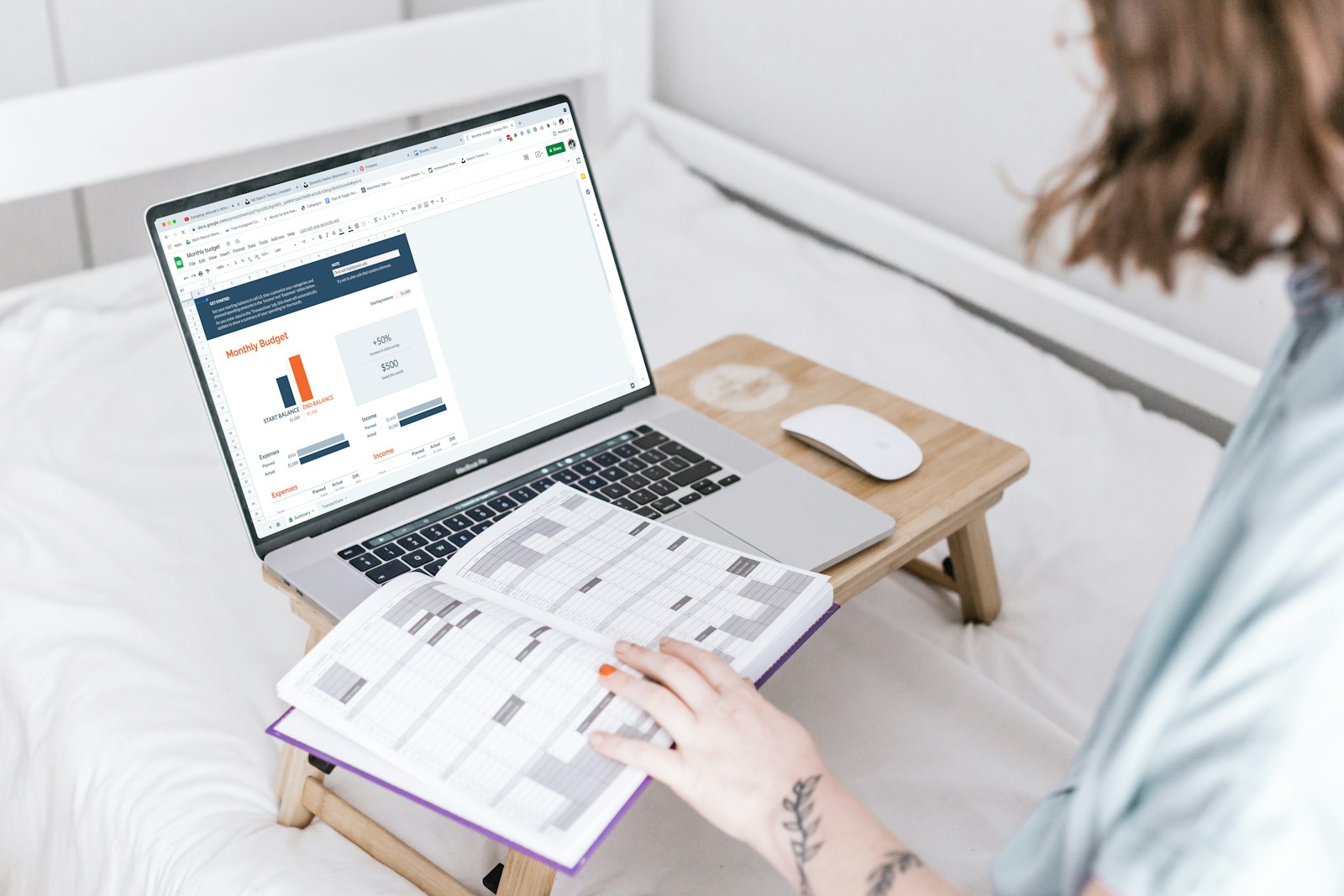Why Budgeting Matters
Finances, they can feel like a complicated subject. It’s easy to get lost in the details, especially when you’re just starting out. But taking charge of your money doesn’t have to be a scary thing. In fact, it’s a really important skill that can significantly improve your life. A well-managed budget gives you a clearer view of where your money goes. This clarity is the first step to making informed decisions about your spending and saving. It’s about understanding your income and expenses, so you can make choices that align with your goals.
Think of it this way: without a budget, your finances are like a ship without a rudder. You might drift along, sometimes feeling like you’re doing okay, other times feeling lost. A budget provides that rudder. It guides you toward your destination, whether that’s paying off debt, saving for a home, or just having a little more financial security. This helps you avoid the stress that comes with financial uncertainty. It also allows you to plan for the future, instead of simply reacting to the present.
Getting Started: Assessing Your Situation
The initial step in creating a budget is understanding your current financial standing. This involves two key pieces of information: your income and your expenses. Your income is, simply put, the money you receive. This usually comes from your job, but it could also include other sources, such as investments or side hustles. Be sure to include all income sources, even if they fluctuate from month to month.
Next, you need to track your expenses. This is where many people find budgeting a bit of a challenge. You need to know where your money is going. There are several ways to do this. One option is to manually track everything. This could involve keeping a notebook, using a spreadsheet, or using a budgeting app. Another option is to use your bank statements. Most banks allow you to download your transaction history, which you can then categorize.
For a period of at least a month, carefully record every expense, no matter how small. That coffee you bought this morning? Write it down. The bus fare? Note it. The more detailed you are, the better your understanding will be. After a month, you can analyze your spending patterns. You might be surprised at where your money is actually going. Are you spending more on entertainment than you thought? Are there areas where you can cut back?
Creating Your Budget: Methods and Techniques
Once you have a good grasp of your income and expenses, you can start creating your budget. There are several methods you can use. The most common is the 50/30/20 rule. This rule suggests allocating 50% of your income to needs, 30% to wants, and 20% to savings and debt repayment. Needs are essential expenses, like housing, food, and transportation. Wants are things that improve your quality of life, but aren’t essential, like entertainment or dining out. Savings and debt repayment are exactly what they sound like.
Another popular method is zero-based budgeting. With this method, you assign every dollar of your income to a specific category. At the end of the month, your income minus your expenses should equal zero. This forces you to be very deliberate about where your money goes. It can be a great way to stay on track, but it can also be time-consuming.
You might also consider using budgeting apps. There are many apps available, both free and paid, that can help you track your spending, create a budget, and monitor your progress. Some apps connect directly to your bank accounts, automatically categorizing your transactions. This can save you a lot of time and effort. Some apps even provide insights into your spending habits and offer suggestions for improvement. Researching different apps and finding one that suits your needs is a good idea.
Categorizing Your Expenses
When you’re tracking your expenses, it’s helpful to categorize them. This helps you see where your money is going and identify areas where you can potentially save. Common expense categories include:
* **Housing:** Rent or mortgage payments, property taxes, and homeowner’s insurance.
* **Utilities:** Electricity, gas, water, internet, and phone.
* **Transportation:** Car payments, gas, insurance, public transit, and maintenance.
* **Food:** Groceries and dining out.
* **Healthcare:** Health insurance premiums, doctor visits, and medication.
* **Personal Care:** Toiletries, haircuts, and other personal expenses.
* **Entertainment:** Movies, concerts, and other leisure activities.
* **Debt Payments:** Credit card payments, student loans, and other debts.
* **Savings:** Contributions to retirement accounts, emergency funds, and other savings goals.
* **Miscellaneous:** This category can be used for any expenses that don’t fit neatly into other categories.
The specific categories you use will depend on your individual circumstances. The important thing is to create categories that are meaningful to you and that allow you to track your spending accurately.
Adjusting Your Budget: Staying on Track
A budget isn’t something you set up once and then forget about. It’s a living document that should be reviewed and adjusted regularly. At least once a month, take some time to look over your budget and see how you’re doing. Compare your actual spending to your budgeted amounts. Did you stay within your limits? Did you overspend in any areas?
If you overspent in a particular area, you need to figure out why. Was it a one-time occurrence, or is it a sign of a larger problem? If it’s a recurring issue, you might need to adjust your budget to reflect your actual spending habits. You might need to cut back in other areas, or you might need to find ways to increase your income.
It’s also important to review your budget periodically to make sure it still aligns with your goals. As your life changes, your financial needs will change as well. If you get a raise, you might want to increase your savings contributions. If you have a major life event, like getting married or having a child, you’ll need to adjust your budget to account for the new expenses.
Flexibility is key. Life throws curveballs. Unexpected expenses will arise. It’s important to have some flexibility built into your budget so you can handle these situations without derailing your financial plan. An emergency fund is crucial for this.
Saving and Debt Management
Budgeting is not just about cutting back on spending. It’s also about building a solid financial foundation. This includes saving money and managing your debt effectively.
Saving money is essential for achieving your financial goals. Whether you’re saving for a down payment on a home, retirement, or a vacation, you need to set aside a portion of your income regularly. Start small if you need to. Even a small amount saved consistently can add up over time. Automate your savings. Set up automatic transfers from your checking account to your savings account each month. This makes saving effortless.
Debt management is another important aspect of budgeting. High-interest debt, like credit card debt, can be a major drain on your finances. Develop a plan to pay off your debt as quickly as possible. There are several debt repayment strategies you can use. The debt snowball method involves paying off your smallest debts first, regardless of the interest rates. This can give you a psychological boost. The debt avalanche method involves paying off your highest-interest debts first. This can save you money on interest in the long run.
Using Technology to Help
Technology can be a powerful ally in your budgeting efforts. As mentioned earlier, budgeting apps are a great way to track your spending, create a budget, and monitor your progress. Many apps offer features like automatic transaction categorization, spending reports, and goal tracking.
Spreadsheets are another useful tool. You can create your own budget spreadsheets, or you can use pre-made templates. Spreadsheets give you more control over your budget than apps, but they also require more manual input.
Online banking is also a valuable resource. Most banks offer online tools that allow you to view your transaction history, track your spending, and set up alerts for low balances or unusual activity.
The use of technology is not essential, but it can make budgeting much easier and more efficient.
Avoiding Common Budgeting Mistakes
Even with the best intentions, people often make mistakes when budgeting. Being aware of these common pitfalls can help you avoid them.
One common mistake is not being realistic about your income and expenses. It’s important to be honest with yourself about how much money you earn and how much you spend. Don’t underestimate your expenses or overestimate your income.
Another mistake is not tracking your spending consistently. If you only track your spending occasionally, you won’t get an accurate picture of your financial situation. Make tracking a regular habit.
Failing to adjust your budget is also a mistake. As your life changes, your budget needs to change as well. Don’t be afraid to make adjustments as needed.
Finally, don’t give up. Budgeting can be challenging at first, but it gets easier over time. If you make a mistake, don’t get discouraged. Learn from it and keep going.
Budgeting and Your Future
Budgeting is not just about managing your finances today. It’s also about building a better future. By taking control of your money, you can achieve your financial goals, reduce stress, and improve your overall quality of life.
Think about what you want your future to look like. Do you want to own a home? Retire early? Travel the world? Whatever your goals, budgeting can help you get there. By planning ahead, you can make smart financial decisions that will put you on the path to success.
Financial literacy is an ongoing process. Always be learning. Read books, articles, and blogs about personal finance. Take courses or attend workshops. The more you learn, the better equipped you’ll be to manage your money effectively.
One of the biggest benefits of budgeting is the increased sense of control it provides. When you know where your money is going, you feel more in control of your life. This can reduce stress and anxiety, and it can give you the confidence to pursue your dreams.
The use of a well-thought-out budget, along with a good understanding of financial concepts, is a powerful combination. It allows you to navigate the financial landscape with confidence and achieve your goals. Consider it an investment in your future, and start today. The earlier you begin, the more time you have to build a solid financial foundation.
`










